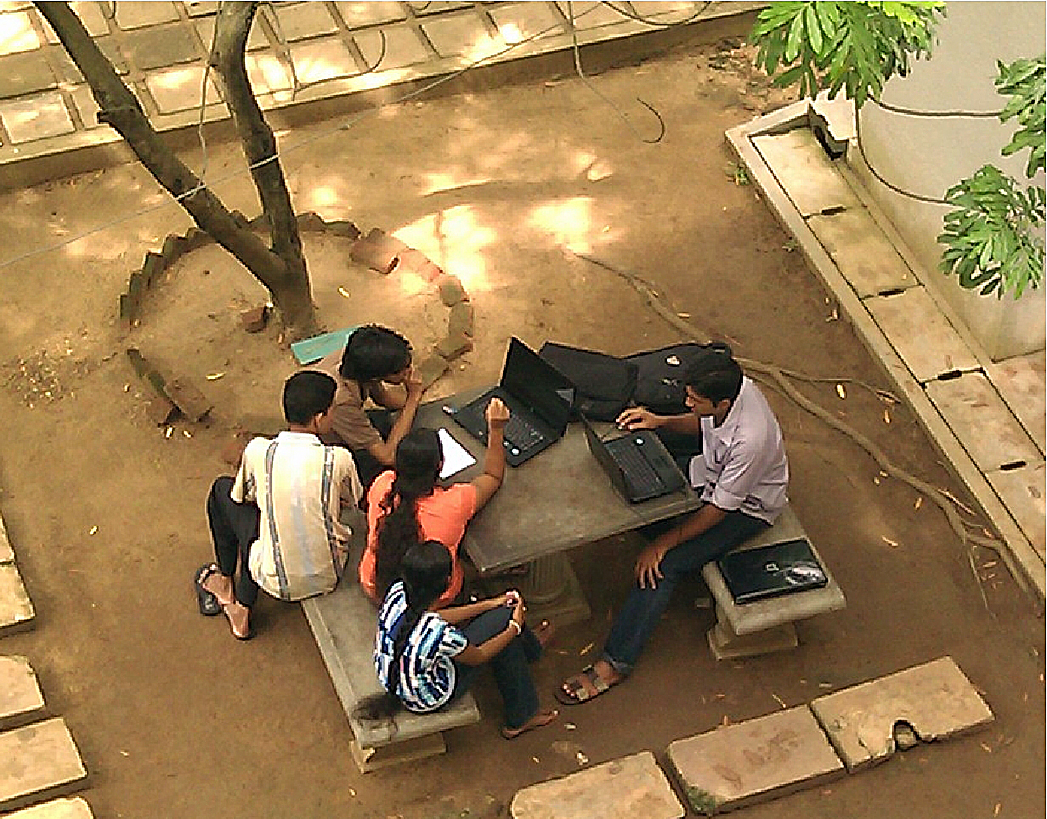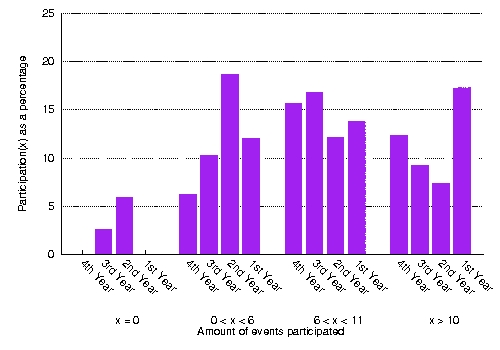How to improve the effectiveness of informal peered group learning?
How to improve the effectiveness of informal peered group learning? An information technology based approach to build a collaborative peer group learning framework on top of an ad-hoc network
Peer group learning is being introduced in many educational systems as an effective way of developing social and cognitive aspects of students. We observed that there is a spontaneous informal peer group activity among university students in Universities of Sri Lanka, called "Kuppi" in local language, which takes place mostly at outdoor locations. Since it is difficult to acquire conventional mediation tools and artifacts such as white boards, projectors, etc. at an outdoor location, conducting group learning activities in such resource constrained environments is tedious. Nowadays, most students carry wireless connectivity enabled laptop computers which can successfully be used as a mediation artifact. We conducted this research to develop an appropriate framework to help and motivate students to conduct peer group learning activities using their laptop computers.

We chose undergraduate students at University of Colombo School of Computing for our research. The survey carried out to measure popularity of informal peer group learning among undergraduate students has revealed very satisfactory results. Even the 4th year undergraduate students who does significant amount of their course work individually, have been participated for considerable amount of informal peer group discussions.

We developed a tool which enables students to easily share their laptop screens or individual applications' screens on top of an ad-hoc network. Hence no existing network infrastructure is required. This enables students to conduct their informal group discussions by using laptop computers as a mediation artifact for their learning probably at any location. A beta version of the tool installed Ubuntu GNU/Linux live CD is also available for you to download from here.
We evaluated the tool by giving it out to informal peer group learners and they appreciated our support even regarding their informal learning.
Project members:
- Kenneth Thilakarathna
- Kasun De Zoysa
- Chamath Keppitiyagama
Publications:
- Kenneth Thilakarathna, Chamath Keppitiyagama, Kasun De Zoysa, and Henrik Hansson. Incorporating digital tools for informal peer group learning. In Proceedings of 2nd International Conference on Computer Supported Education, volume 1, pages 450–453. INSTICC, 2010.
- Kenneth Thilakarathna, Chamath Keppitiyagama, Kasun De Zoysa, Prasadi Jasinghe, and Henrik Hansson. Design and evaluation of an application software for informal peer group learning. In Proceedings of 9th WSEAS International Conference on Education and Educational Technology(EDU’10), volume 1, pages 229 – 234. WSEAS Press, October 2010.